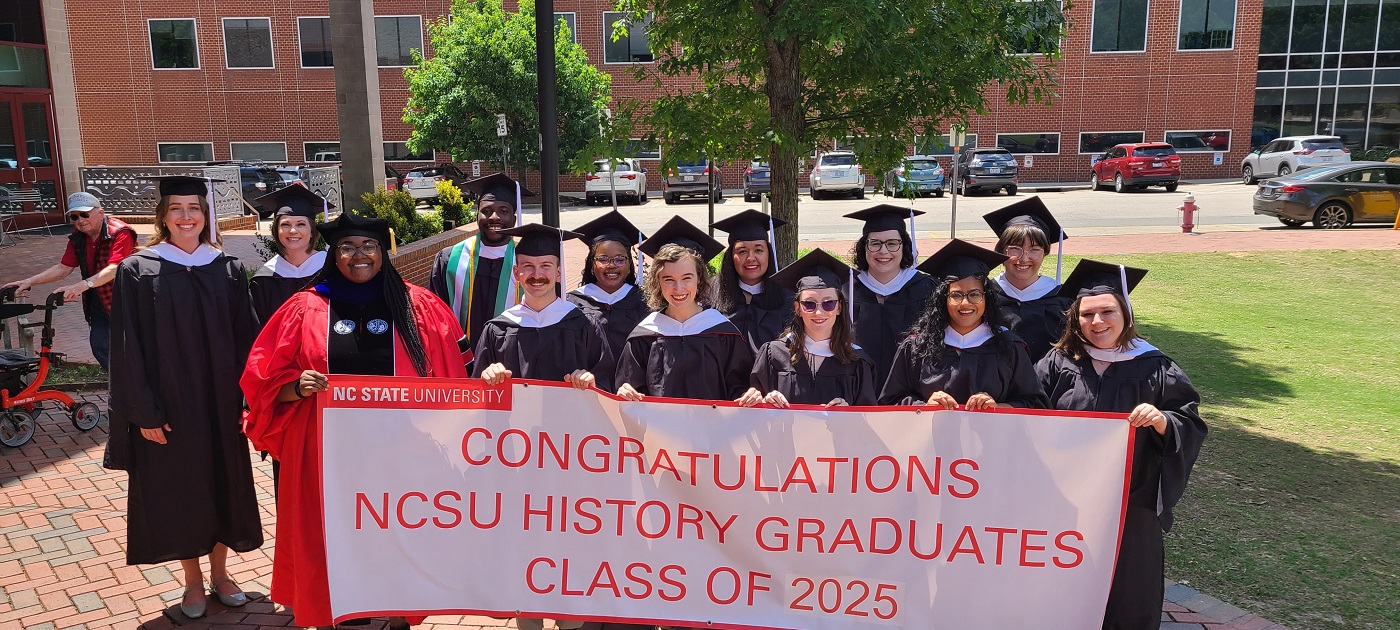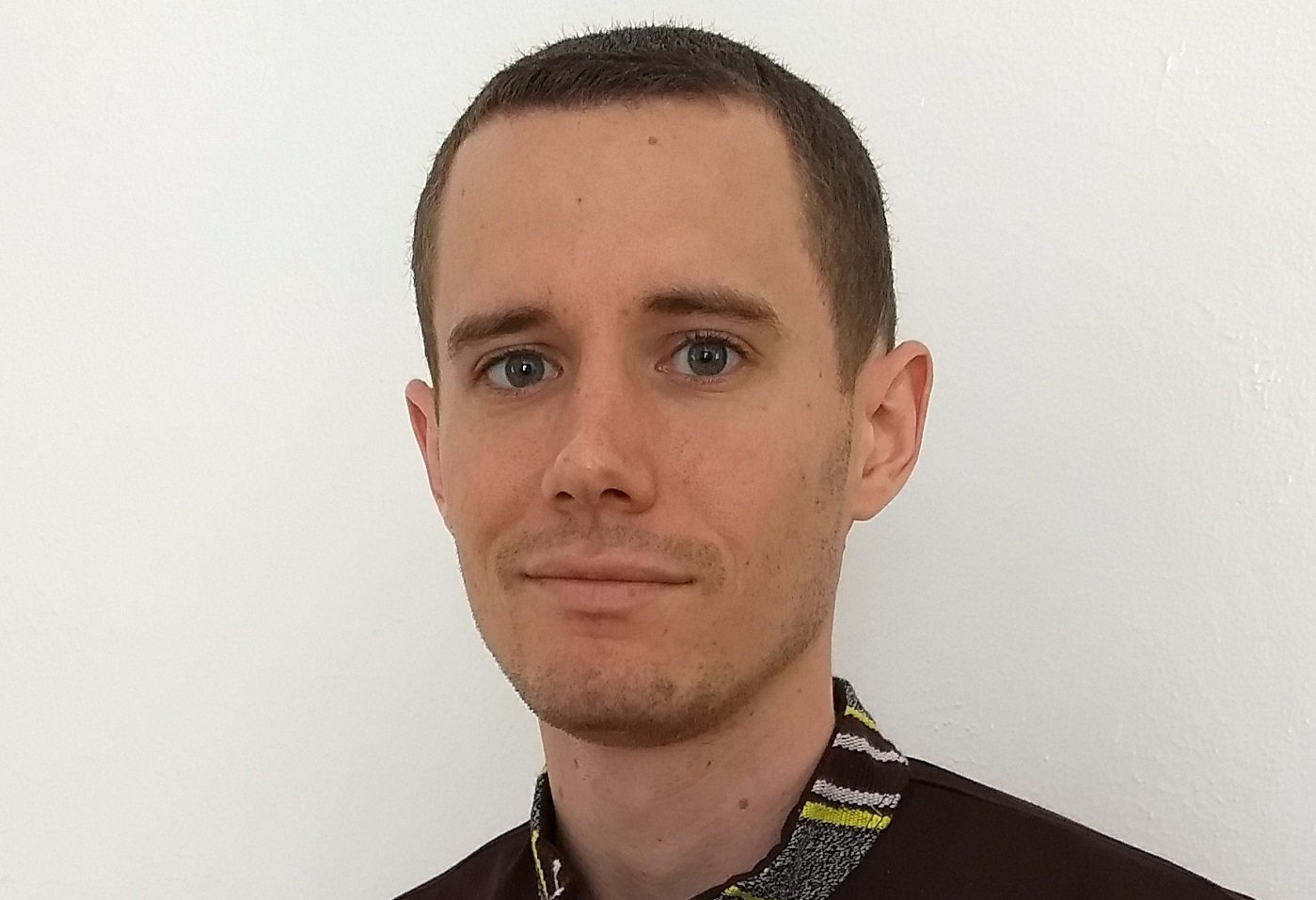NC State History Department adds Legal History Concentration for Undergraduate History Majors
The idea of a legal history concentration has been discussed in the History Department for some time. But after many conversations with students interested in law school, Teaching Assistant Professor and former lawyer, Dr. Steven Lechner, decided that it was time to work with the Chair and faculty to get the ball rolling. Says Lechner, “I was convinced that what we do in the historical discipline is best suited for the experience that you have as a first year law student. It’s hard to imagine a discipline in a better position to help one figure that out then history. Thinking like a historian is different than other disciplines and closer to what it means to think like a lawyer, so when you when you combine thinking like a lawyer and thinking like a historian, I think it’s quite powerful.”
Former Interim Chair and current legal scholar, Dr. Julia Rudolph, held planning discussions with other legal history scholars on the faculty. Together they determined that the concentration will offer at least three courses each semester including, for example: Michael Weisel’s HI 443, U.S. Constitutional History to 1883, which teaches the constitutional law class with a touch of Socratic method, as it would be done in law school; Dr. Rudolph’s HI 324, History of Common Law and Constitution which focuses on Anglo-American common law; Dr. Lechner’s HI 383, Law in the American Story; Dr. David Zonderman’s HI 450, U.S. Labor Since 1900, because labor history is so intertwined with labor law and Dr. Ebony Jones’s HI 491 senior seminar, The Law in Slavery and Freedom. A student in the concentration must take four classes including three legal history core classes and an elective from political science, philosophy, or history. Additional classes will soon be added and over time the concentration will diversify from mostly American topics.
 Lechner’s class, Law in the American Story, is designed to prepare students for the first year of law school when they are exposed to the major fields of legal practice – contracts, constitutional law, criminal law, property, and torts. Says Lechner, “I wanted to figure out a way to marry those legal fields with examples that would map on to the broader narrative of American history in a way that would bring it to life. The idea is to find case studies at different points in time, so the class will move chronologically from the colonial era to the present while weaving in these legal fields along the way.”
Lechner’s class, Law in the American Story, is designed to prepare students for the first year of law school when they are exposed to the major fields of legal practice – contracts, constitutional law, criminal law, property, and torts. Says Lechner, “I wanted to figure out a way to marry those legal fields with examples that would map on to the broader narrative of American history in a way that would bring it to life. The idea is to find case studies at different points in time, so the class will move chronologically from the colonial era to the present while weaving in these legal fields along the way.”
To spread the word, Jennifer Lee, Director of Undergraduate Advising, and the Legal History committee announced the concentration as a new option to current history majors and minors and pre-law students across campus as of Fall 2023 and it is being highlighted at events and programs. Says Lee, “When talking with students, I find that those who really love history, but are also thinking about law school are very interested in the concentration because it gives them a sneak peek at their possible future field. It is also a great way for them to continue to explore and develop their skill set in the area of deep reading and factual analysis, critical thinking and to understand the historical underpinnings of the current legal system.” Dr. Rudolph also emphasized that this is not just a concentration for students who intend to go to law school but its also for students interested in all sorts of topics like “how law has affected the history of technology, or the history of international affairs and international rights, or property development and all the different ways in which law can affect social and environmental change.”
A public launching event to announce the new concentration will take place April 9. The event will also be a memorial to Jonathan Ocko, the History Department’s former Chair and faculty member who was a Chinese legal historian, and will feature Dr. Mae Ngai, a prominent historian of law and migration and the Chinese diaspora. According to Dr. Julia Rudolph, “the legal concentration lecture series will continue into the future as a way to show how legal history is applied and how it can relate to the work or scholarship of graduate students, public historians, or undergraduates going into all sorts of fields.”
Says Lee, “The legal concentration is an exciting opportunity to highlight and build upon the wonderful classes and incredible work being done by our faculty to connect with students interested in this field of study to give them even greater insight and skill development towards their goals.”
- Categories:


